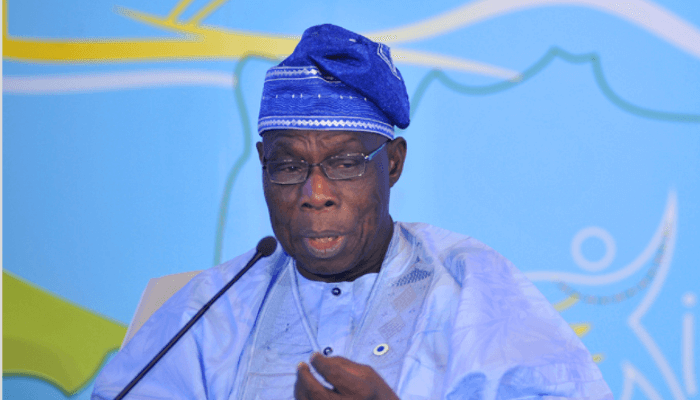ACCRA — Former Nigerian President Olusegun Obasanjo delivered a sobering call to action at the Democracy Dialogue 2025 in Accra, warning that democracy across Africa and beyond risks collapse unless urgently reformed. Speaking to a packed audience of policymakers, activists, and scholars, the elder statesman pinpointed the “practice of democracy itself” as its own worst enemy, likening it to an insect devouring a vegetable from within. His remarks, made on September 17, 2025, come as democratic backsliding and populist surges challenge governance from Nigeria to Ghana and beyond.
“In my part of the world, we say the thing that killed the vegetable is the insect in the vegetable. The same that is killing democracy is the practice of democracy itself,” Obasanjo declared, critiquing systems that have drifted from the core principle of government “of the people, by the people, for the people.” He argued that what passes for democracy today often resembles “government by some people over all the people,” where elites hoard power, sidelining citizens. With Africa’s population projected to hit 2.5 billion by 2050 and youth unemployment averaging 13%, such disconnects fuel distrust, as seen in recent protests from Lagos to Accra.
Obasanjo’s warning resonates in Ghana, host of the summit and a democratic beacon since 1992, yet grappling with challenges like soaring campaign costs—estimated at $200 million for a presidential bid—and voter apathy, with 2024 election turnout at 60%. The former president, who led Nigeria from 1976-1979 and 1999-2007, drew on decades of experience to argue that democracy’s survival hinges on reforms “in context, in content, and in practice.” He called for systems that reflect local realities, prioritize accountability, and deliver tangible benefits like jobs and security, rather than entrenching power for a select few.
The Democracy Dialogue, organized by the Kofi Annan Foundation and partners, convened leaders to tackle these issues amid global concerns over democratic erosion. In Africa, military coups in Mali, Burkina Faso, and Niger since 2020 underscore the fragility of governance, while Nigeria’s 2023 elections faced allegations of rigging, further denting public faith. Obasanjo, a vocal advocate for African unity, stressed that democracy remains irreplaceable but must evolve to serve citizens over elites. “We cannot abandon it, but we must reshape it,” he said, urging inclusive reforms like broader party primaries, as echoed by Ghanaian lecturer Ishaq Ibrahim earlier this week.
Obasanjo’s address didn’t shy away from tough truths. He highlighted how flawed elections, corruption, and exclusion breed disillusionment, pointing to Nigeria’s 40% poverty rate and Ghana’s 13% unemployment as symptoms of misaligned systems. His solution? Prioritize participatory governance, transparent financing, and policies that empower youth and women. As President John Dramani Mahama pushes his “Reset Ghana” agenda, including climate and economic reforms, Obasanjo’s words serve as both a warning and a roadmap.
With 2028 elections looming and global democratic indices showing a 20-year decline, the stakes are high. Obasanjo’s call to action challenges African leaders to act decisively—reform democracy now, or risk its burial under the weight of its own flaws.




